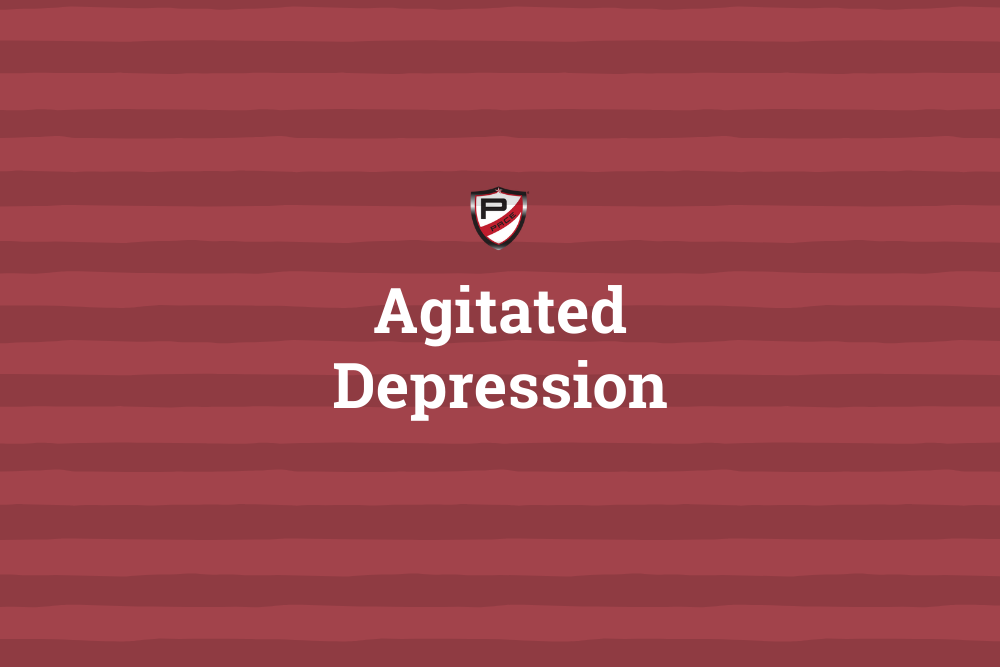When you hear the word “depression”, you likely think about a significantly low mood, lack of motivation, or suicidal ideation. However, there are other symptoms of a depressive disorder that may be overlooked. Agitated depression is not its own diagnosis in the DSM-5-TR. Instead, it is a specifier often attached to major depressive disorder and bipolar disorders. Understanding the unique signs of an agitated depressive episode can help you better recognize the potential of an underlying mental illness.
What is Agitated Depression?
Someone who has agitated depression will exhibit common indicators of depression, like a decrease in energy levels, hopelessness, and a general lack of interest in activities or relationships. The differentiating factor between a standard depressive disorder and agitated depression comes in the presence of persistent irritability. Those who have a form of agitated depression will likely exhibit signs such as:
- Irritability
- Outbursts of anger
- Psychomotor activation
- Insomnia
- Racing thoughts
These features may be present in someone with another depressive disorder, but are more pronounced in someone with this specifier.
How is Agitated Depression Diagnosed?
Any diagnosis of a mental illness requires an evaluation by a mental health professional. This can come from a medical provider, a licensed therapist, or a psychiatrist. To receive an official diagnosis, you’ll need to schedule an appointment with one of these clinicians. They will review your presenting concerns and past medical records, when applicable. They may ask questions about the duration, frequency, and severity of your symptoms to determine what patterns are present. These signs could be physical or emotional, and your provider may want to first rule out an underlying health condition. Generally, a mental health professional will identify the main diagnosis of either depression or bipolar disorder before adding the agitation specifier.
Depression Treatment
After you receive a diagnosis of agitated depression, the next step is to seek out treatment. Depression can result in suicidal ideation and extremely negative emotions, so this is not something you should attempt to deal with alone. Trained mental health providers can work with you to develop appropriate coping skills to manage your emotions and physical symptoms. You will also work alongside your therapist to process any of the life experiences that contribute to your agitated depression. Some of the most commonly used evidence-based practices for depression include:
- Cognitive-Behavioral Therapy (CBT)
- Experiential Therapy
- Group Therapy
- Behavior Therapy
- Eye Movement Desensitization and Reprocessing (EMDR)
You’ll work closely with your therapist and treatment team to determine the best combination of therapies and medication for you.
Help for Young Men With Agitated Depression
If you are a young adult man experiencing signs of depression and need support, PACE Recovery Center can help. We offer residential and outpatient mental health treatment for men primarily between the ages of 18 and 30 in Orange County, California. Our evidence-based treatment model allows you to participate in multiple types of therapy that support your holistic recovery. We understand that each person has different goals and life experiences, so we work with you to develop a treatment plan that accurately reflects your needs. We support your academic and career aspirations, so you can focus on healing without sacrificing your current or future career. If you’re in need of more support for a diagnosis of agitated depression, contact our Orange County treatment team today.



